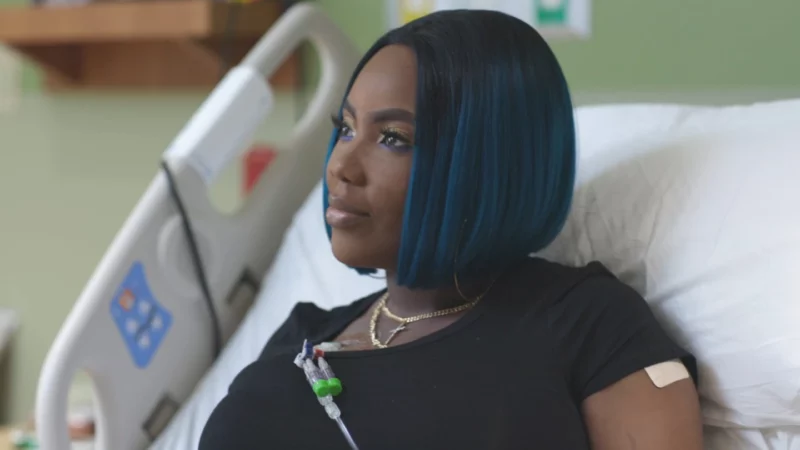A new cure for sickle cell disease may be coming. Health advisers will review it next week
Share
Explore Our Galleries
Breaking News!
Today's news and culture by Black and other reporters in the Black and mainstream media.
Ways to Support ABHM?
By Laura Ungar, Associated Press

The only cure for painful sickle cell disease today is a bone marrow transplant. But soon there may be a new cure that attacks the disorder at its genetic source.
On Tuesday, advisers to the Food and Drug Administration will review a gene therapy for the inherited blood disorder, which in the U.S. mostly affects Black people. Issues they will consider include whether more research is needed into possible unintended consequences of the treatment.
If approved by the FDA, it would be the first gene therapy on the U.S. market based on CRISPR, the gene editing tool that won its inventors the Nobel Prize in 2020.
The agency is expected to decide on the treatment in early December, before taking up a different sickle cell gene therapy later that month.
Dr. Allison King, who cares for children and young adults with sickle cell disease, said she’s enthusiastic about the possibility of new treatments.
“Anything that can help relieve somebody with this condition of the pain and the multiple health complications is amazing,” said King, a professor at Washington University School of Medicine in St. Louis. “It’s horribly painful. Some people will say it’s like being stabbed all over.”
Learn more about the disease in the original article.
See our online exhibits here.









Comments Are Welcome
Note: We moderate submissions in order to create a space for meaningful dialogue, a space where museum visitors – adults and youth –– can exchange informed, thoughtful, and relevant comments that add value to our exhibits.
Racial slurs, personal attacks, obscenity, profanity, and SHOUTING do not meet the above standard. Such comments are posted in the exhibit Hateful Speech. Commercial promotions, impersonations, and incoherent comments likewise fail to meet our goals, so will not be posted. Submissions longer than 120 words will be shortened.
See our full Comments Policy here.